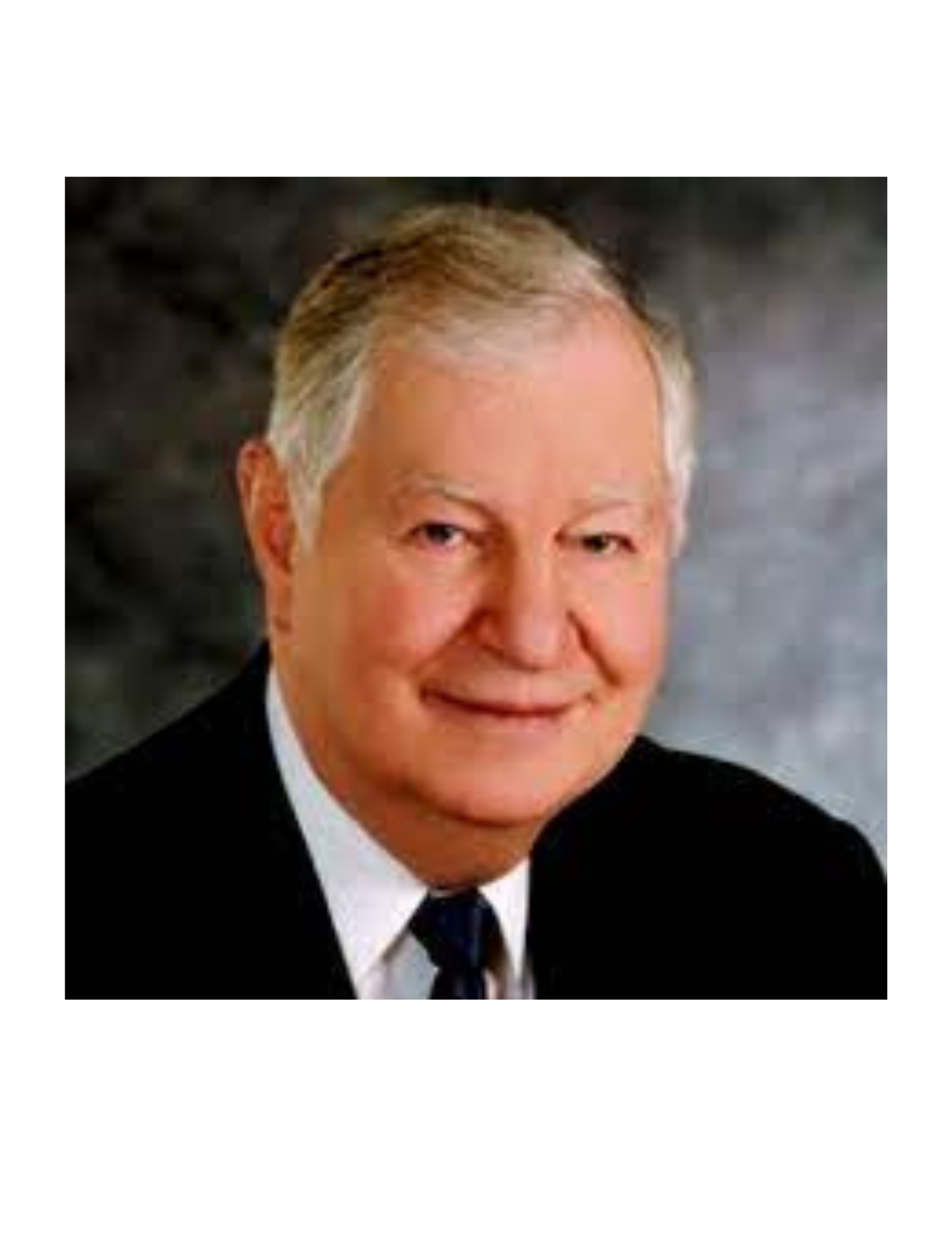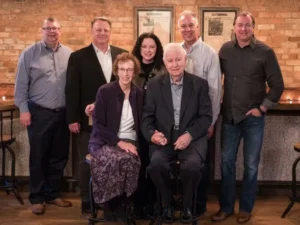Three Steps to Powerful Prayer in Your Church
A quote from Martin Luther hung in my grandparent’s bedroom when I was younger. It said, “I have so much to do that I shall spend the first three hours in prayer.” I remember thinking how backward that seemed to me at the time. If you have so much to do, wouldn’t it be better to start doing it? Spending three hours in prayer seems like you’ve wasted so much time on what must be a busy day! Now that I am older, I see the wisdom in Luther’s quote. But I must admit… I don’t always follow his advice.
Perhaps you can relate. Many church leaders see prayer as something we do before we get to the “real work.” We rush through prayer to start a meeting because we understand the value of “starting with prayer,” but not in spending time to offer an “effective, fervent” prayer (James 5:16, KJV).
On a recent podcast episode, Jimbo spoke with Rev. Rick Fisher, the Vice President of Blackaby Ministries, and co-author of the book, Developing a Powerful Praying Church with Dr. Richard Blackaby. He stated that a praying church is one where “prayer is the foundation of everything you do.” You may think that you have built a foundation of prayer in your church, but are you truly seeing transformative, exciting communication with God? Or are you simply going through the motions of prayer to check off a box? Rev. Fisher discussed several steps to help churches and pastors move from a prayer life that feels lethargic and powerless to an effective and dynamic one.
Step One: Evaluate Your Own Prayer Life
The first step toward a powerful, praying church is to start with a powerful, praying pastor. Rev. Fisher recognized that while he knew the cliches to say in prayer and how to vocalize prayer, he didn’t know how to communicate with God. He wanted to hear from God, but often, God heard from him instead.
You may wonder at the difference– what does it matter if we speak or God does? But it matters a great deal. When we never stop to listen to what God is saying to us, our prayer life becomes one-sided and dangerously close to self-serving. We begin to rely on our own power to transform our church. True communication with God, where we sit and wait for His response, reminds us that this is God’s church, not ours.
Think about it this way: when you finish praying is there time for God to respond? Or are you immediately moving on, content to have spoken to Him? Just because you’re done praying, doesn’t mean you’re done listening.
Prayers that Seek God’s Face, not His Hand
As pastors, we often get caught up in praying for things that Rev. Fisher reminds us are in “God’s hands.” “God’s hands,” he says, “represent what God does.” When we pray with our hearts focused on God’s hands, we look to experience God’s gifts of favor, blessing, or reward. We hope to have our needs met and our expectations exceeded.
By contrast, Rev. Fisher points us toward Psalm 27:8: “You have said, ‘Seek my face.’ My heart says to you, ‘Your face, Lord, do I seek..’” If God’s hands represent what He does, then God’s face represents who He is.
When we begin our prayer earnestly seeking God’s character, it changes our prayers from self-focused to God-focused. When we stop striving to convince God to move according to our wants and desires, it changes our hearts to recognize His sovereignty in all things and to relinquish control over them. When we are informed about who God is, we trust Him more.
A powerful praying church begins with a pastor whose personal prayer life is one of submission to God’s character and who makes time to listen to Him, not only speak.
Step Two: Engage Your Church in Scripture-Filled Prayer
How often have you heard the phrase, “Let’s start with prayer,” followed by, “Now, open your Bibles to this chapter and verse.” Rev. Fisher would encourage us to flip those two statements around. Your church doesn’t need to start praying without first beginning in Scripture. If we pray to seek God’s face, we must first understand who He is– and there is no better place to discover that than in His Word. Many times, Fisher says, “What you need to pray, what God wants to say to you, embed in you, and adjust in you comes right out of his word.” When we engage our churches to become powerful, praying people, we must first open our Bibles and teach them to do the same.
If your Wednesday night prayer meeting has devolved into a litany of rote names and their various ailments, it may be because your church is praying without a true understanding of who God is. They might need to be reminded through Scripture. Fisher recommends starting your prayer time by opening up to a Psalm and asking the question, “What does this Scripture tell me about God?” He explains that having a proper view of God and His character gives your congregation more confidence in seeking Him and in trusting Him.
For example, if we were to open up to Psalm 130 before we pray and ask, “What does this tell me about God’s character?” we can answer that God is forgiving, and He is merciful. We can say that God’s love is steadfast and He is attentive to our prayers. We are reminded to wait upon the Lord as we pray. As we begin to pray, we are better able to trust God with the outcome knowing that He is in control and our circumstances are not separate from His love and mercy.
Step Three: Pray with Purpose
Emojis have made it easy to water down prayers to a simple 🙏. We can post a quick response to someone’s prayer request before we mentally register what they even asked. “Thoughts and prayers,” has become so ubiquitous that even non-Christians post it as a knee-jerk response.
If we’re honest, perhaps even in our prayer times at church, we have grown complacent with standard cliches and phrases. We might even be guilty of praying without any thought at all. How many of us can rattle off a night-time prayer we learned in childhood? My grandfather said the same prayer every time he was asked to pray over a meal: “Dear Lord, make us truly thankful for these and all other blessings, we ask this in Jesus’ name, Amen.” At least I think that’s what he said– honestly, it was always said so quickly I barely even had time to close my eyes or bow my head before it was over.
If prayer is the foundation on which everything in our church is built, it deserves to be treated with respect. Rev. Fisher said he realized, “I had to stop saying things that didn’t make sense in prayer like ‘God be with us.’ We’re not asking God to be with us, He’s there. The better prayer is: ‘God, make us aware of how present you already are.’” Adjusting the phrasing and the way he prayed showed his church the importance of praying with a purpose.
Specific Prayers and Specific Pray-ers
In Acts 4, we get a very close look at a powerful, praying church. Peter and John have been arrested and tried before the Council and the early church Christians are experiencing persecution and trials. When they return to the church members, they don’t recite a thoughtless, memorized litany of requests and cliches. Instead, the Bible tells us that they “lifted their voices together to God,” acknowledged His plan and faithfulness, and prayed for boldness to continue healing and proclaiming His name.
The early church’s prayer was answered. The Bible says, “When they had prayed, the place they were gathered together was shaken, and they were all filled with the Holy Spirit and continued to speak the word of God with boldness.” They prayed specifically for boldness, and God answered specifically.
Rick Fisher asked this question: “Is there anything your church is praying for that could only be explained if God did it?” We must be willing to pray specific prayers for our church– to ask God to do what only He can.
We must also be willing to pray fervently, without ceasing, until the prayer is answered. So often, we pray a few times and then stop. We get bored or restless and then begin to try to accomplish things on our own. But God doesn’t operate on our timeline. We must teach our churches to pray until God moves, whatever that looks like.
As pastors, we may also be guilty of being too willing to let someone pray corporately who frankly doesn’t have a solid prayer life privately. We need to be specific in our prayers, but also in who prays! Rev. Fisher makes this analogy: “We never think about asking a soloist to sing who can’t sing on key. Prayer is more important than singing. So why would we ever let anyone pray publicly who prays off key?”
Is the person praying over the offering in your services doing so because he is a righteous man, passionate about church finances being used for God’s Kingdom? Do you know that he is praying over the church budget and prayerfully supports the ministries of the church in his private life? Or did he just lose a rock, paper, scissors game before the offering was taken?
If you aren’t praying with your people, pastor, then you don’t know who is praying Spirit-filled, God-honoring prayers that truly communicate with the Lord. You don’t know who is seeking the Lord’s face daily.
Powerful Prayers Deserve Powerful Praise
The final step toward developing a powerful praying church? Celebrate answered prayers! When your church has prayed specific, fervent, God-seeking prayers, and you see God move in specific ways, then that deserves a celebration.
Don’t be tempted to speak in terms of “we were lucky to experience this,” or “this was an accident.” Give God the glory for the great things He has done! We prayed, God responded, and God did this! Remind your congregation of the times God has answered prayers in the past and encourage them to continue to pray and seek God’s face.
Rev. Fisher made this statement on prayer and I think it sums up exactly what prayer in our churches should look like: “Prayer is not merely a means of expressing our concerns to God but a divine invitation for God to lay His heart over ours. Through prayer, we align our thoughts and desires with God’s, allowing His perspective to shape our actions and decisions.”
I want to be a part of that! I want my church to be a part of that!
For more information on Rev. Rick Fisher or his book, Developing a Powerful, Praying Church, see www.blackaby.org.
Don’t forget to nominate guests for future episodes of the Replant Bootcamp podcast!

































